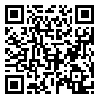Volume 19, Issue 1 (Spring 2024)
Salmand: Iranian Journal of Ageing 2024, 19(1): 40-53 |
Back to browse issues page
Download citation:
BibTeX | RIS | EndNote | Medlars | ProCite | Reference Manager | RefWorks
Send citation to:



BibTeX | RIS | EndNote | Medlars | ProCite | Reference Manager | RefWorks
Send citation to:
Soleimanpour Manzari R, Moradi M, Sadeghmoghadam L. Effect of Psychological/Spiritual Self-care Education Through Telenursing on Death Anxiety of the Elderly During the COVID-19 Pandemic in Gonabad, Iran: A Randomized Controlled Clinical Trial. Salmand: Iranian Journal of Ageing 2024; 19 (1) :40-53
URL: http://salmandj.uswr.ac.ir/article-1-2508-en.html
URL: http://salmandj.uswr.ac.ir/article-1-2508-en.html
1- Student Research Committee, Gonabad University of Medical Sciences, Gonabad, Iran.
2- Nursing Research Center, Gonabad University of Medical Sciences, Gonabad, Iran.
3- Department of Ageing Health, Faculty of Nursing, Social Development and Health Promotion Research Center, Gonabad University of Medical Sciences, Gonabad, Iran. ,ls_moghadam@yahoo.com
2- Nursing Research Center, Gonabad University of Medical Sciences, Gonabad, Iran.
3- Department of Ageing Health, Faculty of Nursing, Social Development and Health Promotion Research Center, Gonabad University of Medical Sciences, Gonabad, Iran. ,
Abstract: (4214 Views)
Objectives The COVID-19 pandemic had a heavy impact on the elderly and was associated with many disorders, such as death anxiety. The current study aims to assess the effect of psychological and spiritual self-care education through telenursing on the death anxiety of the elderly during the COVID-19 pandemic in Gonabad, Iran.
Methods & Materials This randomized controlled clinical trial study was conducted on 52 eligible elderly people covered by the urban community health centers in Gonabad County. The participants were randomly assigned to intervention and control groups. For the intervention group, one face-to-face psychological/spiritual self-care educational session was held. Then, telephone follow-ups were done twice a week in the first month and once a week in the second month (12 follow-up sessions). The data collection tool was the Templer death anxiety scale, completed by both groups before and immediately after the follow-ups. Data analysis was done using SPSS software. The significance level was set at 0.05.
Results The pre-test mean scores of death anxiety in the intervention and control groups were 49.19±11.04 and 45.92±9.38, respectively, which were not significantly different between the two groups. After the intervention, the mean death anxiety in the intervention and control groups was 36.62±8.49 and 42.31±9.76, respectively, and this difference was statistically significant (P<0.001).
Conclusion Psychological/spiritual self-care education through telenursing is effective in reducing the death anxiety of the elderly during the COVID-19 pandemic. Therefore, it is recommended as a non-pharmacological and low-cost intervention for relieving the death anxiety of the elderly.
Methods & Materials This randomized controlled clinical trial study was conducted on 52 eligible elderly people covered by the urban community health centers in Gonabad County. The participants were randomly assigned to intervention and control groups. For the intervention group, one face-to-face psychological/spiritual self-care educational session was held. Then, telephone follow-ups were done twice a week in the first month and once a week in the second month (12 follow-up sessions). The data collection tool was the Templer death anxiety scale, completed by both groups before and immediately after the follow-ups. Data analysis was done using SPSS software. The significance level was set at 0.05.
Results The pre-test mean scores of death anxiety in the intervention and control groups were 49.19±11.04 and 45.92±9.38, respectively, which were not significantly different between the two groups. After the intervention, the mean death anxiety in the intervention and control groups was 36.62±8.49 and 42.31±9.76, respectively, and this difference was statistically significant (P<0.001).
Conclusion Psychological/spiritual self-care education through telenursing is effective in reducing the death anxiety of the elderly during the COVID-19 pandemic. Therefore, it is recommended as a non-pharmacological and low-cost intervention for relieving the death anxiety of the elderly.
Type of Study: Research |
Subject:
gerontology
Received: 2022/09/21 | Accepted: 2023/06/20 | Published: 2024/04/01
Received: 2022/09/21 | Accepted: 2023/06/20 | Published: 2024/04/01
Send email to the article author
| Rights and permissions | |
 |
This work is licensed under a Creative Commons Attribution-NonCommercial 4.0 International License. |








